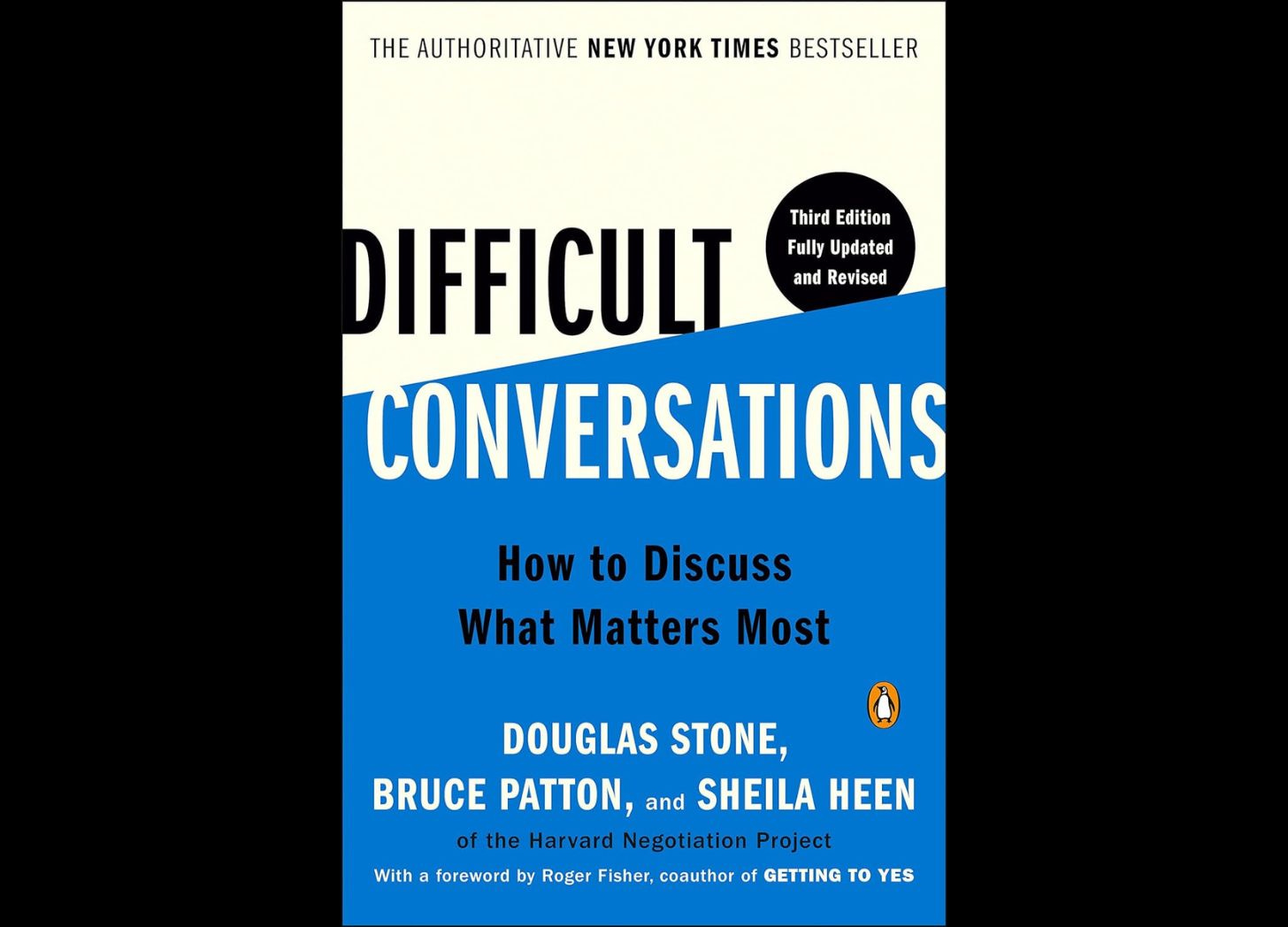Book Byte #255 "Difficult Conversations" by Douglas Stone
How to Discuss What Matters Most
📣 Curious Quotes from the Author
“The single most important thing [you can do] is to shift [your] internal stance from "I understand" to "Help me understand." Everything else follows from that. . . .Remind yourself that if you think you already understand how someone feels or what they are trying to say, it is a delusion. Remember a time when you were sure you were right and then discovered one little fact that changed everything. There is always more to learn.”
“Difficult conversations are almost never about getting the facts right. They are about conflicting perceptions, interpretations, and values.”
“Difficult conversations are almost never about getting the facts right. They are about conflicting perceptions, interpretations, and values.”
“The urge to blame is based . . . on the fear of being blamed.”
“Often we go through an entire conversation – or indeed an entire relationship – without ever realizing that each of us is paying attention to different things, that our views are based on different information.”
“Learning that you can’t control the other person’s reaction, and that it can be destructive to try, can be incredibly liberating. It not only gives the other person the space to react however they need to, but also takes a huge amount of pressure off you. You will learn things about yourself based on their reaction, but if you are prepared to learn, you’ll feel free from the desperate need for their reaction to go one certain way.”
“Intentions are invisible. We assume them from other people’s behavior. In other words, we make them up, we invent them. But our invented stories about other people’s intentions are accurate much less often than we think. Why? Because people’s intentions, like so much else in difficult conversations, are complex. Sometimes people act with mixed intentions. Sometimes they act with no intention, or at least none related to us. And sometimes they act on good intentions that nonetheless hurt us.”
“Paradoxically, there is also considerable persuasion power in inquiry and listening.”
“Imagine that while scuba diving, you suddenly see a shark glide into view. Your heart starts to pound and your anxiety skyrockets. You’re terrified, which is a perfectly rational and understandable feeling. Now imagine that your marine biology training enables you to identify it as a Reef Shark, which you know doesn’t prey on anything as large as you. Your anxiety disappears. Instead you feel excited and curious to observe the shark’s behavior.”
📚 Cognition of the Book’s Big Idea
You tend to avoid difficult conversations out of dread of the outcome. By emphasizing curiosity, discussing feelings, and abstaining from placing blame on one another, the "What Happened?", Feelings, and Identity Conversations can be changed into Learning Conversations. It will be easier to have a meaningful conversation with someone if you keep these points in mind and tell them a Third Story.
Become aware of your inner voice.
The small voice inside of you that critiques everything you read, hear, and do is known as your inner voice. That voice has the occasional tendency to become louder and drown out other speakers. First, listen to it rather than muted it. By doing this, you'll learn what your actual ideas are and develop your ability to listen more intently to others.
My Software Stack: I use Skool for my Online Community Platform and ClickFunnels for my Landing Pages, Payments, and Email Sequencing. I use Substack for my Newsletter and Taskade for AI Note Taking/Second Brain/Project Management. I use my Personal Amazon Store for Tech and Book Recommendations.
Try out the "Think and Grow Rich Challenge" by Russell Brunson and Learn more about the First Self Help Author Napoleon Hill

